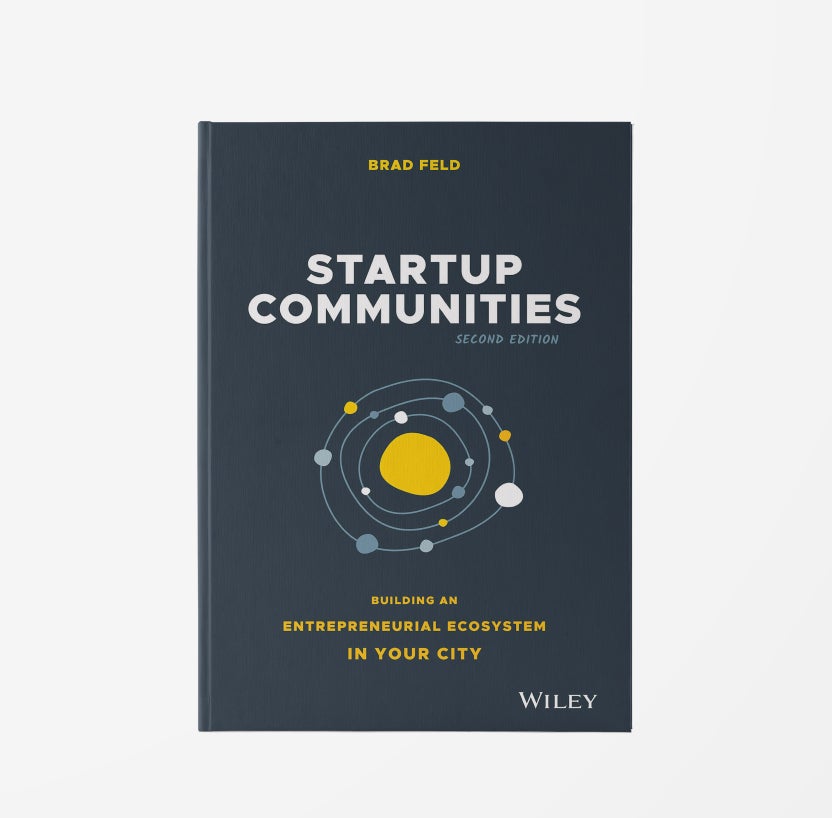- Ecosystem Entrepreneur
- Posts
- The Boulder Thesis, by Brad Feld
The Boulder Thesis, by Brad Feld
Key Principles for Building a Successful Startup Community
Brad Feld's Boulder Thesis is a set of principles that describe the essential elements required to create and sustain a successful entrepreneurial ecosystem. Feld is a prominent serial entrepreneur, venture capitalist, philanthropist, and co-founder of Techstars, was inspired by the thriving startup community in Boulder, Colorado, when he formulated the Boulder Thesis.

The four key principles of the Boulder Thesis are:
1. Entrepreneurs must lead the startup community: Feld believes that entrepreneurs should be the primary driving force behind the startup community, as they understand the unique challenges, opportunities, and risks involved in building a business. Their leadership ensures that the ecosystem remains relevant, effective, and supportive of the needs of entrepreneurs.
2. The leaders must have a long-term commitment: Building a sustainable entrepreneurial ecosystem takes time and perseverance. Feld suggests that leaders should commit to their community for a long-term period, often as long as 20 years, to ensure that the ecosystem grows, adapts, and continues to support startups and entrepreneurs.
3. The startup community must be inclusive and welcoming: A successful entrepreneurial ecosystem is built on diversity, inclusivity, and openness. Feld emphasizes that the startup community should be open to anyone who wants to participate, regardless of their background, expertise, or experience. This inclusiveness fosters collaboration, creativity, and shared growth.
4. The ecosystem must foster regular activities and events that engage the entire entrepreneurial stack: Continuous engagement and learning are essential for maintaining momentum and driving innovation within the startup community. Feld recommends organizing regular events, programs, and activities that promote networking, learning, and collaboration among entrepreneurs, investors, mentors, and other stakeholders.
The Boulder Thesis has been influential in shaping the understanding of what makes a startup ecosystem thrive. By adhering to these principles, communities around the world can work towards developing their own successful entrepreneurial ecosystems, fostering innovation, economic growth, and job creation.
Leaders, Feeders, & Instigators:
Brad Feld further introduces the concepts of leaders, feeders, and instigators as key components of a successful entrepreneurial ecosystem.
Leaders: Leaders are primarily entrepreneurs who have a deep understanding of the challenges and opportunities in building businesses. They play a pivotal role in driving the startup community, setting the vision, and guiding the ecosystem's development. Their leadership ensures that the community remains relevant, effective, and supportive of the needs of entrepreneurs.
Feeders: Feeders are the supporting stakeholders that contribute to the growth and success of the startup ecosystem. These include investors, mentors, service providers, large companies, government and policymakers, and educational institutions. Feeders play a vital role in providing resources, guidance, and connections that help startups thrive.
Instigators: Instigators are the proactive individuals or organizations that initiate and drive activities, events, or programs to promote engagement, learning, and collaboration within the startup community. They act as catalysts that bring together different stakeholders, fostering a sense of unity and shared purpose in the ecosystem.
Feld's stakeholder map includes the following key participants:
In addition to the Boulder Thesis, Brad Feld also introduces a concept called the "entrepreneurial stack" in his book "Startup Communities: Building an Entrepreneurial Ecosystem in Your City." This concept represents the various stakeholders involved in a startup ecosystem.
1. Entrepreneurs: They are the heart of the startup community and the primary driving force behind innovation and growth.
2. Investors: Investors such as angel investors, venture capitalists, and other financial institutions provide the necessary capital to support entrepreneurs in their ventures.
3. Mentors: Experienced entrepreneurs, business leaders, and industry experts who offer guidance, advice, and support to help startups navigate the challenges they face.
4. Service Providers: Professionals and organizations that offer services such as legal, accounting, marketing, and other support functions that are essential to the success of startups.
5. Large Companies: Established corporations in the region that can provide resources, partnerships, and expertise to the startup community.
6. Government and Policy Makers: Local and national government bodies that can create a conducive environment for entrepreneurship through policies, regulations, and incentives.
7. Educational Institutions: Universities, research institutions, and other educational organizations that contribute to the ecosystem by providing talent, research, and innovation.
By understanding and engaging with the various stakeholders in the entrepreneurial stack, communities can work together to build a thriving and sustainable entrepreneurial ecosystem.
Check out his book here:
Startup Communities: Building an Entrepreneurial Ecosystem in Your City is a must-read book for anyone interested in entrepreneurial ecosystems and startup communities. We have only touched upon key aspects of the book, but there is much more to dive into.

Reply